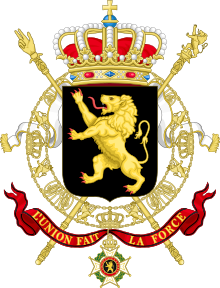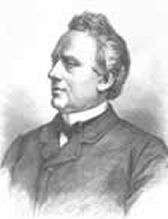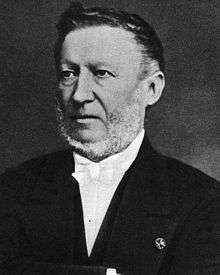1878 Belgian general election
Partial general elections were held in Belgium on 11 June, 18 June and 15 July 1878.[1][2] The result was a victory for the Liberal Party, which won 72 of the 132 seats in the Chamber of Representatives and 36 of the 66 seats in the Senate.[2] Voter turnout was 62.5%, although only 56,640 people were eligible to vote.
| |||||||||||||||||||||||||||||||
66 of the 132 seats in the Chamber of Representatives 67 seats needed for a majority | |||||||||||||||||||||||||||||||
|---|---|---|---|---|---|---|---|---|---|---|---|---|---|---|---|---|---|---|---|---|---|---|---|---|---|---|---|---|---|---|---|
| |||||||||||||||||||||||||||||||
| |||||||||||||||||||||||||||||||
 |
|---|
| This article is part of a series on the politics and government of Belgium |
|
|
|
|
Federal Cabinet |
|
|
Under the alternating system, elections for the Chamber of Representatives were only held in four out of the nine provinces: Hainaut, Limburg, Liège and East Flanders. Additionally, special elections were held in the arrondissements of Antwerp, Brussels and Kortrijk after these electoral districts got one extra seat due to population growth.
They were the first elections with strict guarantees for secret ballots following the law of 9 July 1877, which contributed to the success of the liberals.
Results
Chamber of Representatives
| Party | Votes | % | Seats | ||
|---|---|---|---|---|---|
| Won | Total | +/– | |||
| Liberal Party | 18,966 | 52.6 | 48 | 72 | +15 |
| Catholic Party | 17,085 | 47.4 | 18 | 60 | –7 |
| Invalid/blank votes | 2,697 | – | – | – | – |
| Total | 38,748 | 100 | 66 | 132 | +8 |
| Registered voters/turnout | 57,640 | 62.5 | – | – | – |
| Source: Mackie & Rose,[3] Sternberger et al. | |||||
Senate
| Party | Votes | % | Seats |
|---|---|---|---|
| Liberal Party | 36 | ||
| Catholic Party | 30 | ||
| Total | 66 | ||
| Source: Sternberger et al. | |||
Constituencies
The distribution of seats among the electoral districts was as follows for the Chamber of Representatives, with the difference compared to the previous election due to population growth:[4]
| Province | Arrondissement | Seats | Change |
|---|---|---|---|
| Antwerp | Antwerp | 7 | +1 |
| Mechelen | 3 | – | |
| Turnhout | 3 | – | |
| Limburg | Hasselt | 2 | – |
| Maaseik | 1 | – | |
| Tongeren | 2 | – | |
| East Flanders | Aalst | 3 | – |
| Oudenaarde | 3 | – | |
| Gent | 8 | +1 | |
| Eeklo | 1 | – | |
| Dendermonde | 3 | – | |
| Sint-Niklaas | 3 | – | |
| West Flanders | Bruges | 3 | – |
| Roeselare | 2 | – | |
| Tielt | 2 | – | |
| Kortrijk | 4 | +1 | |
| Ypres | 3 | – | |
| Veurne | 1 | – | |
| Diksmuide | 1 | – | |
| Ostend | 1 | – | |
| Brabant | Leuven | 5 | – |
| Brussels | 14 | +1 | |
| Nivelles | 4 | – | |
| Hainaut | Tournai | 4 | – |
| Ath | 2 | – | |
| Charleroi | 7 | +2 | |
| Thuin | 3 | – | |
| Mons | 5 | – | |
| Soignies | 3 | – | |
| Liège | Huy | 2 | – |
| Waremme | 2 | +1 | |
| Liège | 8 | – | |
| Verviers | 4 | +1 | |
| Luxembourg | Arlon | 1 | – |
| Marche | 1 | – | |
| Bastogne | 1 | – | |
| Neufchâteau | 1 | – | |
| Virton | 1 | – | |
| Namur | Namur | 4 | – |
| Dinant | 2 | – | |
| Philippeville | 2 | – | |
| 132 | +8 |
References
- Codebook Constituency-level Elections Archive, 2003
- Sternberger, D, Vogel, B & Nohlen, D (1969) Die Wahl der Parlamente: Band I: Europa - Erster Halbband, p105
- Thomas T Mackie & Richard Rose (1991) The International Almanac of Electoral History, Macmillan, pp48–49
- List of members of the Chamber of Representatives (1878)

